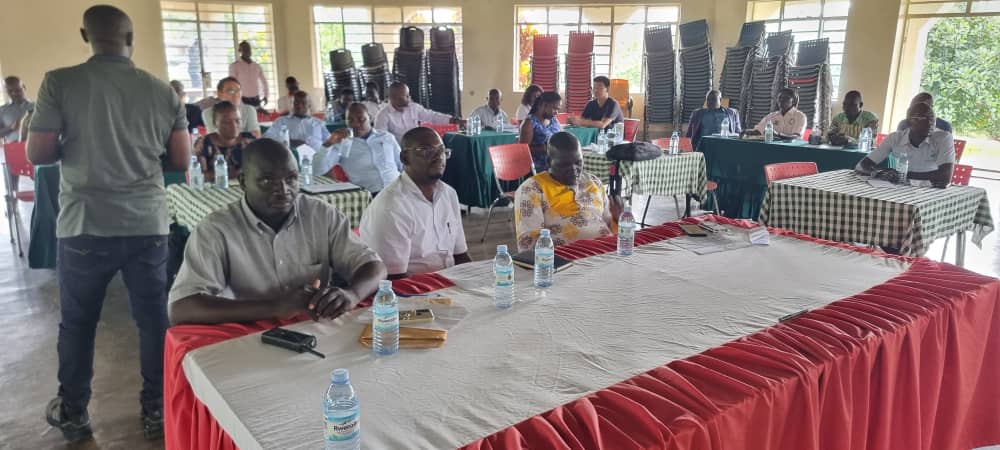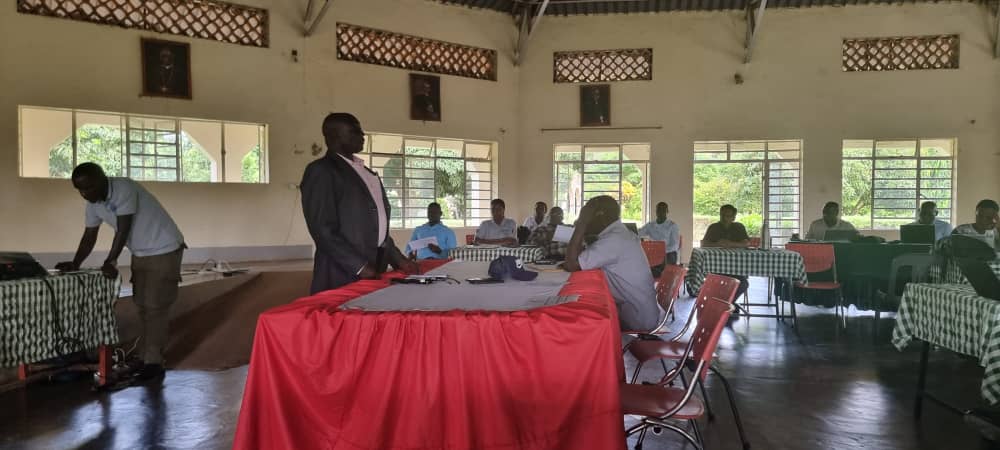
Driven by the urgency to address water supply challenges in Adjumani and its surrounding areas, the National Water and Sewerage Corporation (NWSC) Area management team, led by Engineer Paul Ghona, organized an orientation workshop to discuss plans and partnerships for enhancing the region’s water infrastructure. The initiative aimed to inform and involve the community and stakeholders in the development process, ensuring transparency and collaboration.
The workshop served to update key stakeholders, including project implementation units, Grievance Redress Committees, district leaders, consultants, and contractors, on the requirements and expectations set by the World Bank, the project’s funder. Additionally, participants received capacity-building training on the World Bank’s environmental and social framework policies and standards, which are crucial for the project’s success.
The project, part of the Integrated Water Management and Development Project, targets several areas in Adjumani, including; Pakele town councils, Ciforo, Adropi, Dzaipi, and Pachara sub-counties. Beneficiary communities, particularly the refugee host communities of Nyumanzi, Olua, Pagirrinya, Agojo, Alere, and Mireyi, will see substantial improvements in their water supply infrastructure.
Notably, the project scope involves the construction of a raw water intake with a capacity of 12,000 cubic meters per day on the Nile River. An 8.8-kilometer DN 300 raw water transmission pipeline will be installed to carry water to the Mijale Water Treatment Plant, which will be developed with an initial capacity of 4,000 cubic meters per day, expandable to 8,000 cubic meters per day. Additionally, 22 kilometers of DN300 transmission pipelines will be extended to the Mokolo Master Balancing Reservoir. The project also includes drilling and developing three boreholes in the refugee settlements of Nyumanzi, Olua, and Pagirrinya, as well as the construction of a faecal sludge treatment plant with a capacity of 3.6 cubic meters per day and seven sanitation blocks in selected town councils and sub-counties.
In his address, Engineer Paul Ghona highlighted the current service areas versus the projected demand post-implementation. He emphasized the critical role of timely bill payments in maintaining the corporation’s ability to serve underserved areas and committed to ongoing engagement with customers to ensure bill compliance and reduce non-revenue water (NRW). Ghona also expressed gratitude for the stakeholders’ support in extending services to the broader community.
The Resident District Commissioner (RDC) re-echoed Ghona’s commitment to collaboration, pledging district leadership support for the projects. He underscored the importance of involving local artisans and talent in the project and stressed the need for environmental conservation throughout the process.
Environmental and project managers from NWSC, including Engineer Sharon Karungi and Engineer Herbert Mujuni, along with officials from the Ministry of Water and Environment, elaborated on the environmental and socio-economic safeguards guiding the project’s implementation.
As the workshop concluded, stakeholders were informed that the project contractor had received the commencement notice effective April 1, 2024. With mobilization and camp setup already underway, the project is expected to be completed within 18 months from the start date.



